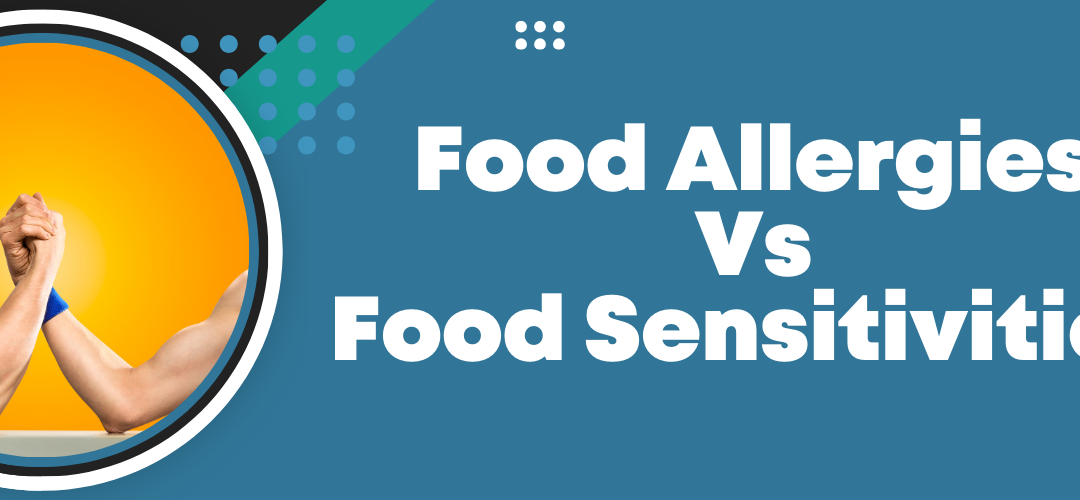Food allergy and food sensitivity are factors that affect many people worldwide. While food sensitivities have been more common than food allergies, allergies are rising worldwide, with many suffering. Even though some people find it hard to distinguish between food allergies and sensitivities, many factors of both conditions can help you set them apart.
What is a food allergy?
A food allergy occurs when you ingest an allergen that your immune system reacts to by causing an allergic reaction and symptoms. This happens because when you eat substances you’re allergic to, the immune system terms them “harmful”. They, therefore, end up releasing chemicals like histamines. When these chemicals flood the body, they cause symptoms all over it.
An allergic reaction can cause symptoms that range from mild to severe. Severe symptoms like anaphylaxis can be life-threatening if not dealt with promptly. Food allergies can be severe, and the symptoms can even arise from smelling or touching allergens. Even ingesting a tiny amount of the allergen can cause allergy symptoms.
Around eight top foods cause about 90% of all allergic reactions. These include milk, eggs, fish, shellfish, wheat soybeans, nuts, tree nuts, and peanuts. Food allergy symptoms often show symptoms within minutes to two hours of contact with the allergen.
Symptoms of food allergies
Food allergy symptoms vary from one individual to the next. These may include:
- Swelling of lips, face, eyes
- Tingling in the mouth
- Hives and itchiness
- Anaphylaxis has symptoms like wheezing, dizziness, throat tightness, and a drop in blood pressure.
- Digestive symptoms like vomiting and stomach pain
What is a food sensitivity?
Food sensitivities affect more people than allergies do. Food sensitivities result from the body’s inability to process or digest specific foods or substances. Food sensitivities or intolerances don’t trigger your body’s immune system. There are many reasons that you may be suffering from food sensitivities. These include:
- Insufficient enzymes or total lack of enzymes required to digest certain foods. For example, people with lactose intolerance lack sufficient lactase enzymes to break down lactose sugar found in dairy products.
- Pharmacological factors like a sensitivity to caffeine or other chemicals.
- Having a reaction to food additives or preservatives like sulfites, artificial colours, or MSG.
- A reaction to sugars present naturally in specific foods like onions or broccoli.
Sometimes, food sensitivities result from illnesses that affect your digestive tract. For example, if you had a type of cancer that required radiation in your stomach, you may suffer from food intolerances because your gut wall is damaged and thus can’t process certain foods as it did before. However, you’ll eventually feel better if you give it time to heal and eliminate that food from your diet.
Other conditions often related to food sensitivities include irritable bowel syndrome, Chron’s disease, and ulcerative colitis. These conditions can elicit symptoms similar to food sensitivities and cause food sensitivities. You can get your doctor to test for these gastrointestinal diseases because treating them can help you better manage food sensitivities or completely clear them.
Symptoms of food sensitivities
Food sensitivity symptoms vary in severity, depending on the amount of the trigger food you’ve consumed. The more you consume the food, the more severe your symptoms will be. These symptoms can occur within a few hours of ingesting the trigger food for three days.
Common symptoms include:
- Diarrhoea
- Constipation
- Bloating
- Stomach cramps
- Nausea
- Headache or migraine
Diagnosing food allergies and sensitivities
If you think you have a food allergy, it’s necessary to take an Allergy Test, and the same applies to food sensitivities, which require a Sensitivity Test. These tests check your sample against many common triggers in your food and drinks and then show you your allergy or food sensitivity.
If you think your child may suffer from these, you must talk to their doctor. Many children experience milk allergy. However, they often outgrow this allergy, so you don’t need to worry too much. Additionally, you need to manage their diet for them so they don’t keep suffering from symptoms.
When it comes to food intolerances, depending on your sensitivity level, you can always reduce the amount of the trigger food you’re consuming or eliminate it from your diet if you feel like you’re too sensitive to it.
Since you may be sensitive to many foods, take precautions when eliminating these foods from your diet. You can consult a dietitian to ensure you add other foods in your diet similar to the ones you’re eliminating so that you don’t suffer from deficiencies or lack certain macronutrients, like fibre, protein, or carbohydrates.
How to handle severe reactions from food allergies and food sensitivities
Since food allergies are known for more severe symptoms, it is essential to have medication and an EpiPen on you if you suffer from food allergies. Antihistamines can help with mild to moderate allergic reactions. However, an EpiPen helps with anaphylaxis, which is more severe. You should ensure those around you know how to administer epinephrine if you or your child suffers from severe allergic reactions.
If your child has a food allergy, let the school know about it so they know how to act in case of accidental consumption of trigger food. Immediately after administering epinephrine, you also need to go to the hospital for emergency care because the symptoms of an allergic reaction may recur a few hours after the first symptoms. So, it’s essential to be in a hospital.
The most severe symptoms you can suffer from food sensitivities are dehydration from diarrhoea and vomiting. You can take over-the-counter antidiarrheals before it’s too late, and also painkillers if your stomach ache is persistent. You can also take antacids for heartburn.
Final thoughts
There are major differences between food allergies and sensitivities. Even though both can cause some digestive symptoms, food allergies majorly affect the body’s immune system, causing it to attack substances in food that aren’t harmful and can cause severe symptoms. However, food sensitivities are mild and easily managed. If you have food allergies and sensitivities, you can ask for professional help when it comes to managing your diet. Food sensitivities are more common, and you can test for them by taking a Sensitivity Test.


